The CMS Roadmap promised an improved backend UI, and v12.2 delivers just that with a lot more features making it easier for the developers in multiple aspects.
In the earlier v12.1, released back in Dec 2022, we saw a range of features launched, from Reactions to changes in the Filelist Backend Module. Similarly, the new version brings in more changes in the Filelist Backend Module along with the introduction of the Message Bus and Queue feature and much more.
Keep reading this guide to know more!
TYPO3 Roadmap
As we discussed earlier, the TYPO3 CMS Roadmap was created solely to let users keep track of the different versions that might be coming along the way and what they can expect from it.
| Version | Primary Focus | Estimated Release |
| 12.0 | New system requirements and breaking changes | Released: 2022-10-04 |
| 12.1 | Interoperability with third-party systems | Released: 2022-12-06 |
| 12.2 | Improved backend UI | Estimated: 2023-02-07 |
| 12.3 | Last-Minute Features | Estimated: 2023-03-28 |
| 12.4 | LTS Release | Estimated: 2023-04-25 |
We will be learning everything that has been launched with v12.2. However, stay tuned for more updates that will be launched soon with v12.3 and v12.4 in the coming months.
Key Features in TYPO3 V12.2
1. Message Bus and Queue
The highlight feature of v12.2 is Message Bus and Queue. This feature brings more stability and higher efficiency to the system leading to better performance overall.
This feature is based on the message bus named Symphony Messenger. While handling messages traveling around in the system, this feature provides a message bus to handle all the messages where they are either delivered immediately or added to the queue to be delivered later.
The entire process saves time and alos makes it easier to carry on the tasks. Earlier, the process seemed too complicated where the messages were sent and received based on the time taken to complete the task; hence it reduced the overall productivity. But now, the process is more systematic and organized.
2. Filelist Backend Module
Filelist Backend Module has always been on the list of updates since v11 and v12. Earlier, new tiles view had been added to the section to view larger thumbnails and fewer details of that particular entity.
However, in v12.2, you might come across the drag-and-drop feature and the ability to create folders more efficiently. Here is all you need to know about it.
1. Drag and Drop Items Into the Tree
TYPO3 earlier version until now only had the option to copy and paste files between folders. However, it wasn’t convenient enough, and thus, v12.2 brings to you the feature to drag and drop files from one location to another.
Open the file list and select the file or multiple files and drag them to the folder tree on the left. You can keep doing this as much as you need. It is highly intuitive to make things easier for everyone.
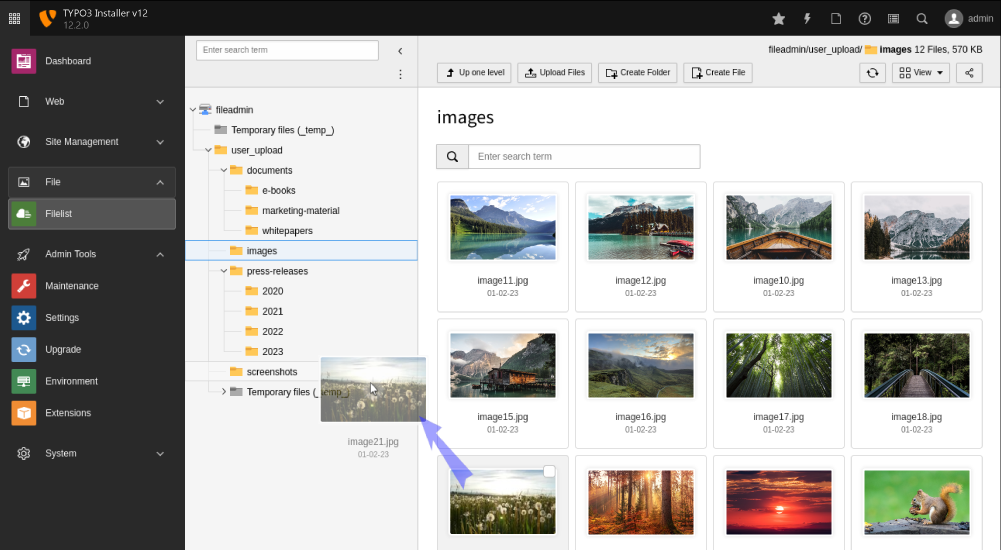
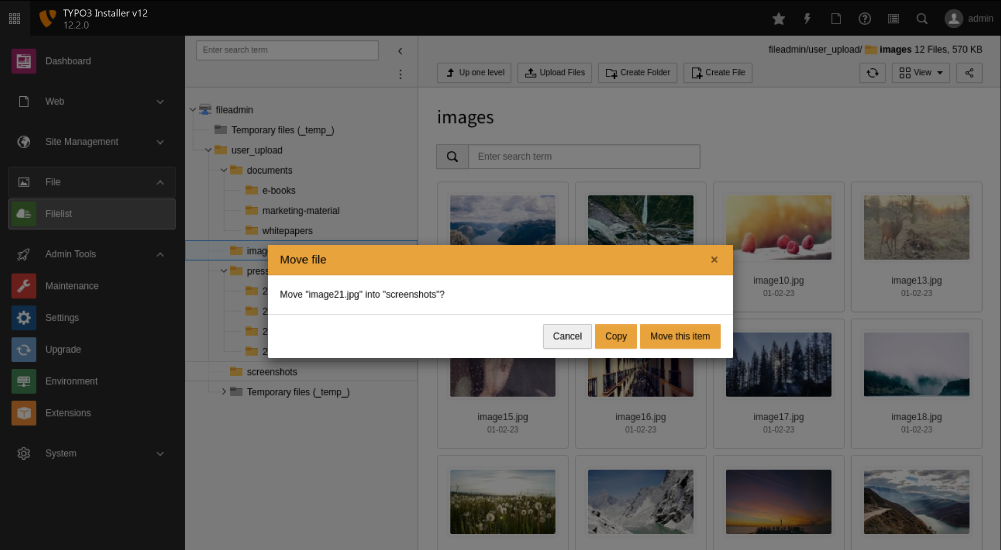
2. Creating Folders
Another feature you will find in the Filelist Backend Module is creating folders is now easier and more elegant. Now, you can create folders within seconds, and instead of creating a new page, a new window will pop up on the screen where you can enter the name.
You can create as many folders as you like on the same window. Also, you can choose the parent folder on the left file tree. As soon as you are done creating folders and closing the window, everything will be saved in an instant.
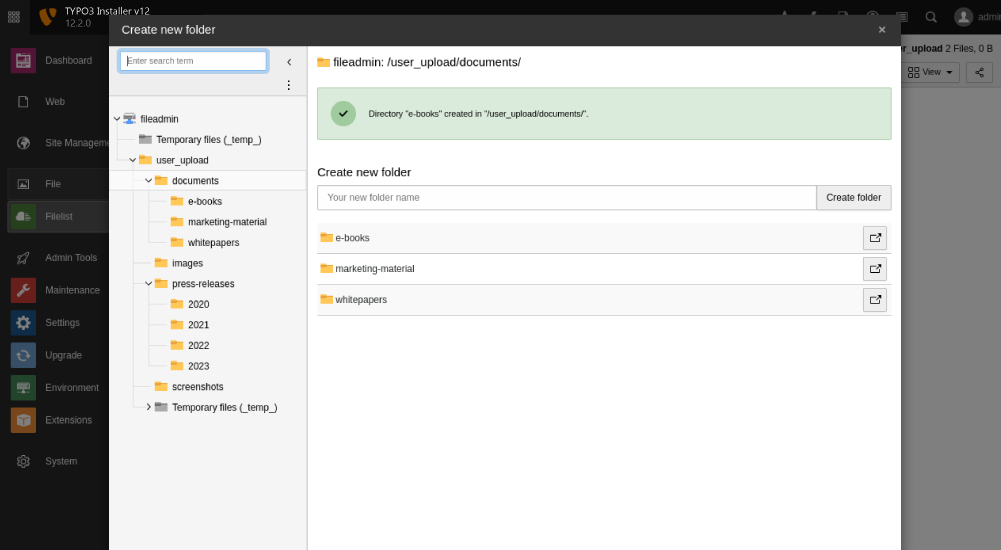
Internationalization
The concept of Internationalization is to make TYPO3 accessible for people across diverse linguistic and cultural backgrounds without having to make major changes in the code and or design. The v12.2 brings in multilingual capabilities to meet the demand.
1. CountryProvider API
This CountryProvider API allows developers to access localized country names and other related data, such as standardized ISO codes and Unicode representations of flags. This new API simplifies the process of creating country lists and ensures consistency across different languages and regions.
The list is based on the ISO 3166-1 standard, and the data is based on the ISO code repository by the Debian project. Hence, all the info retrieved by the API is accurate and up-to-date.
2. Multi-level Language Fallback
It is quite common to have multiple front-end languages on your website. However, there are times when certain content or pages fail to translate in that particular language. In such cases, developers integrate a fallback chain also known as overlays in mixed mode where the system automatically displays the content in another language as a part of the “fallback chain.”
Security Improvements
TYPO3 v12.2 also brings certain security improvements as a part of their update and features. We are aware of how organizations and companies need to comply with certain security standards set by law ad this is why TYPO3 supports such integrations and frameworks to make it easy for the developers as well.
In v12.2, this CMS platform takes into account the global policies where the admin user's account will be created while installing the system. Moreover, this policy also ensures a strong password to be enforced that consists of minimum requirements for length, upper and lower case characters, digits, and other factors.
Other Changes
TYPO3 v12 has been introduced and changed file names for multiple legacy paths such as:
- “LocalConfiguration.php” is now named “settings.php”
- “AdditionalConfiguration.php” is now named “additional.php”
In v12.2, TYPO3 has introduced another path name change, i.e., “ENABLE_INSTALL_TOOL” is now moved to another location that can be seen as below.
For Composer-based installations, the following file paths are checked:
- var/transient/ENABLE_INSTALL_TOOL
- config/ENABLE_INSTALL_TOOL
Similarly, for legacy installations the following file paths are checked:
- typo3temp/var/transient/ENABLE_INSTALL_TOOL
- typo3conf/ENABLE_INSTALL_TOOL
If your system still uses the old location, it can still be used since TYPO3 uses it as a fallback option to ensure backward compatibility.
System Requirements
To run any system or verison, it must need the required system requirements. However, the requirements are all the same for v12 and hence there are no changes whatsoever. Here is everything you need to know.
| Operating System | Linux, Microsoft Windows or macOS (this also includes hosting on all common cloud environments) |
| Webserver | Apache httpd, Nginx, Microsoft IIS, Caddy Server |
| Supported Browsers | Chrome (latest) Edge (latest) Firefox (latest) Safari (latest) |
| Composer | Composer >= 2.1 |
| Database | MariaDB >= 10.3.0 <= 10.6.99 MySQL >= 8.0.0 <= 8.0.99 PostgreSQL >= 10.0 SQLite >= 3.8.3 |
| Hardware | RAM >= 256 MB |
| PHP | PHP >= 8.1.0 <= 8.2.99 |
PHP Compatibility Report
Apart from the list of system requirements, you can also check the PHP Compatibility Report for v12.2 given below:
| PHP versions | TYPO3 v12 2021 - 2026 | TYPO3 v11 2020 - 2024 | TYPO3 v10 2019 - 2023 | TYPO3 v9 2017 - 2021 | TYPO3 v8 2015 - 2020 |
| PHP 7.0 | No | No | No | No | Yes |
| PHP 7.1 | No | No | No | No | Yes |
| PHP 7.2 | No | No | Yes | Yes | Yes |
| PHP 7.3 | No | No | Yes | Yes | Yes |
| PHP 7.4 | No | Yes | Yes | Yes | Yes |
| PHP 8.0 | No | Yes | No | No | No |
| PHP 8.1 | Yes | Yes | No | No | No |
| PHP 8.2 | Yes | Yes | No | No | No |
Download and Installation
Did you go through all the features and updates that the new v12.2 has to offer? Well, if you have it is time to download and install the CMS platform on your website.
Now, you can visit the official TYPO3 website where you can download v12.2 and learn everything you need to know about the process. Similarly, for installation, you can check out the guide here.
Conclusion
That is all you need to know about the new TYPO3 v12.2. It is packed with features that you can try out yourself after installing it on your system. In this guide, we learned about the drag-and-drop feature introduced in the file list module, Message Bus and Queue, and other aspects to ensure Internationalization. You can also avail our TYPO3 Update Upgrade service to keep your store up to date. Looking for permanent solution for this? Visit our Support and Maintenance Service
As your TYPO3 Agency, we ensure your website stays optimized and secure. With enhanced security measures, compliance with global policies is now easier for organizations. For more details, visit the TYPO3 website.

Contact for SMEs, government organizations and BITV 2.0
Stefan Reinhardt
Service Partner - Germany


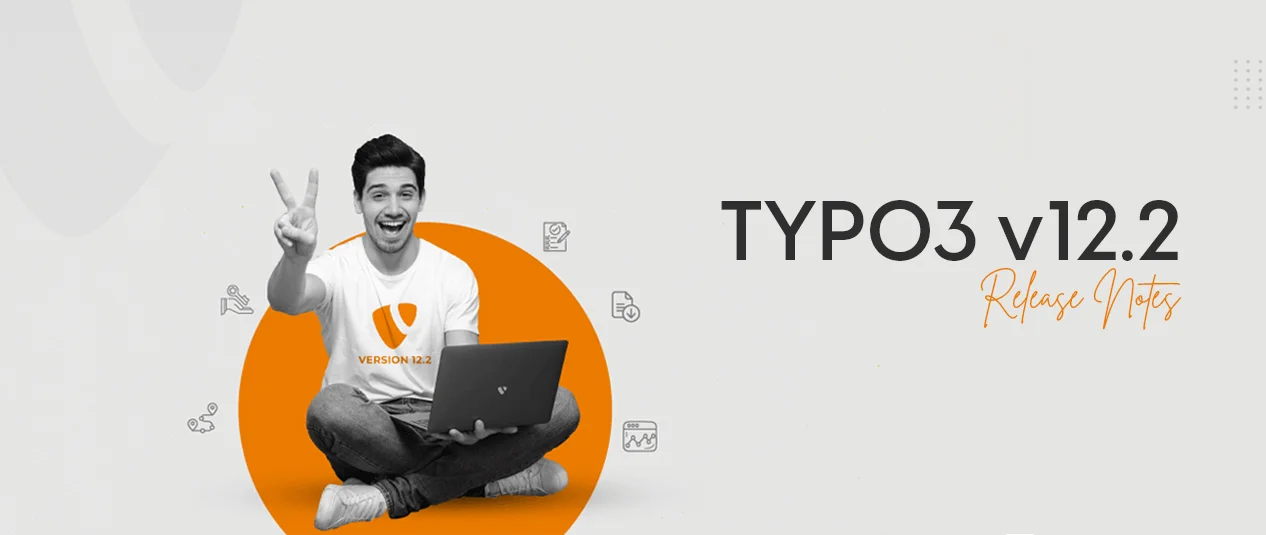
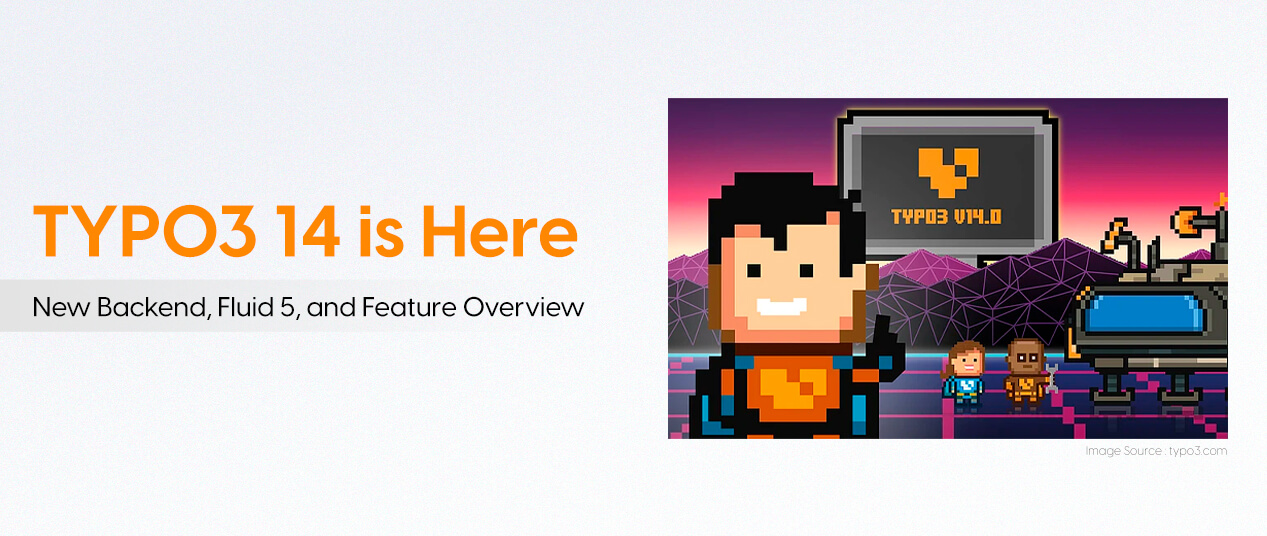
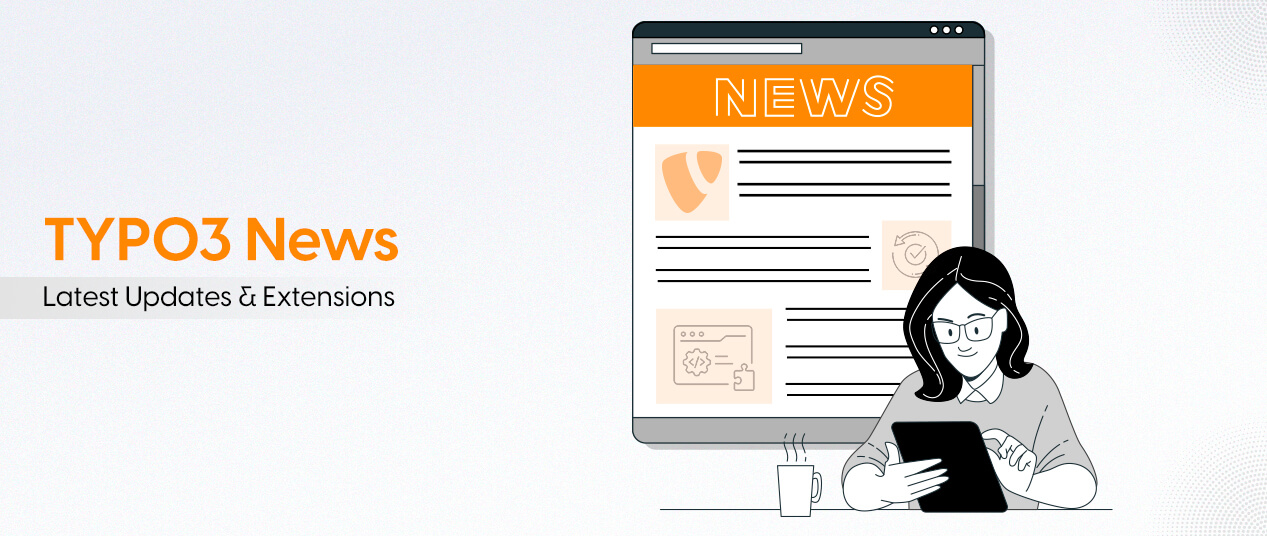
Be the First to Comment